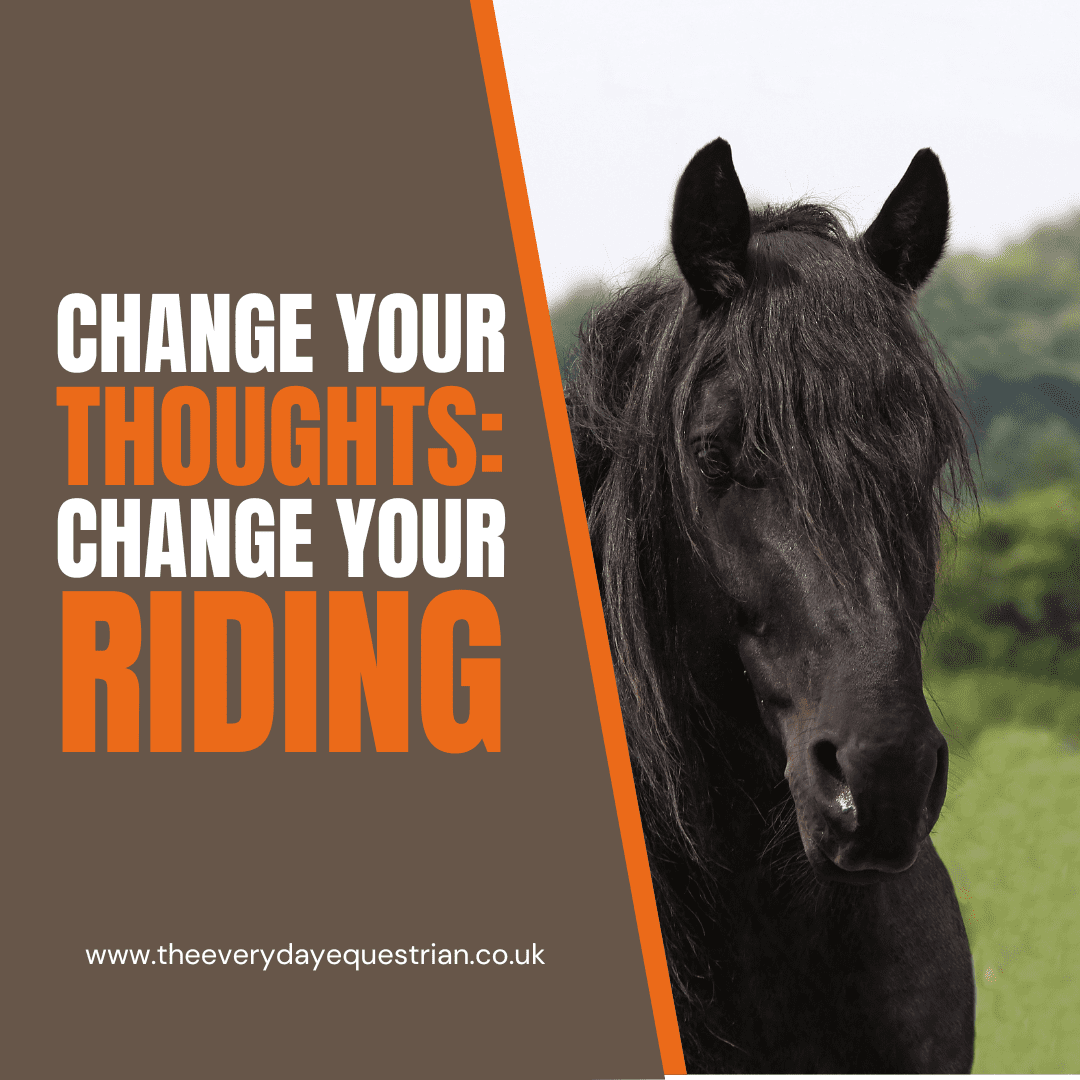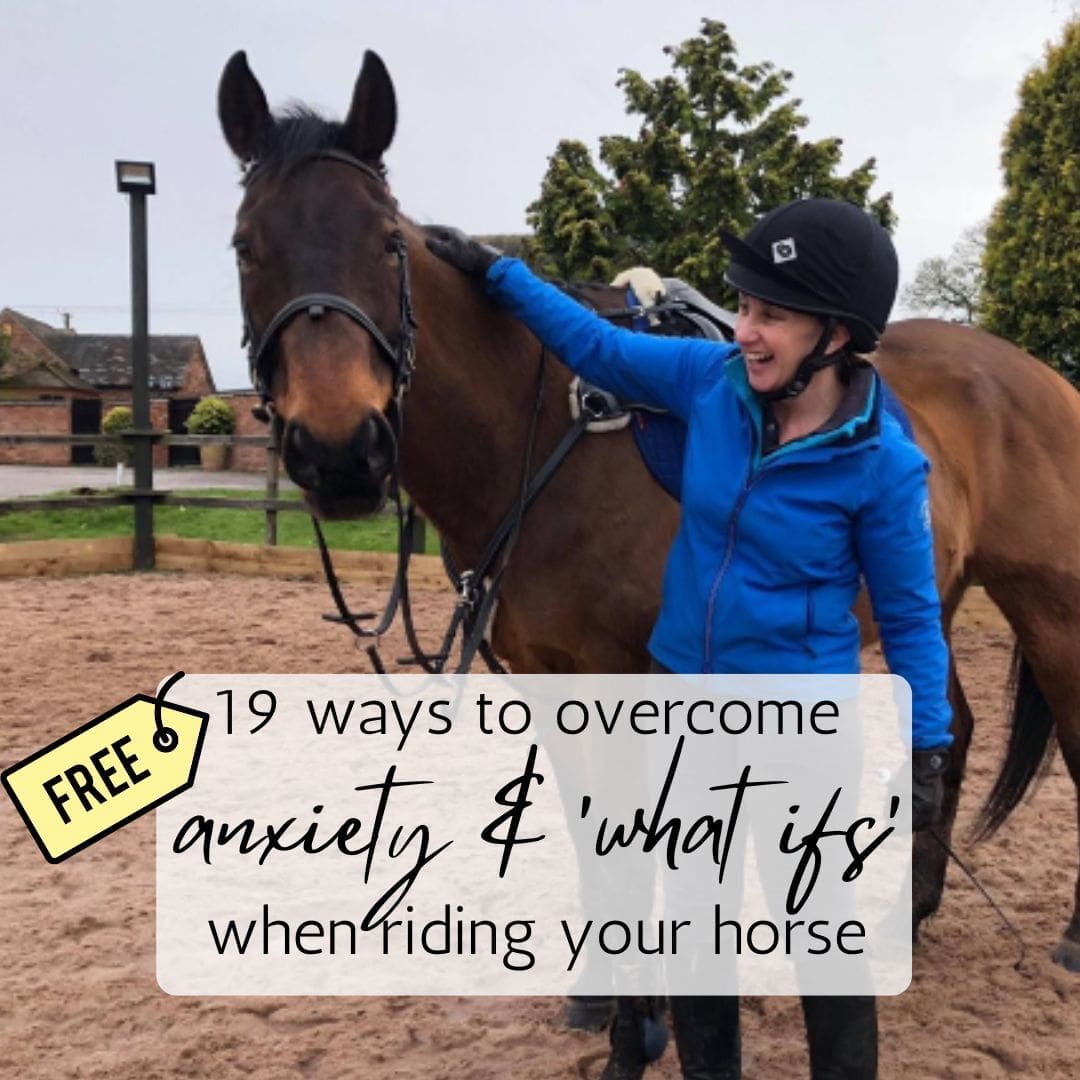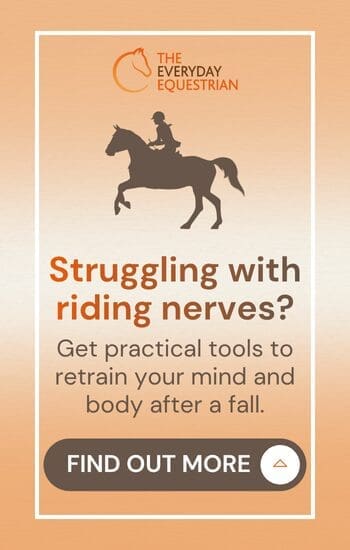Do you find yourself struggling with confidence and battling negative thoughts while riding your horse? If so, know that it’s not uncommon. However, the good news is that you can change your horse riding mindset and transform your experience in the saddle.
In this article, we’ll explore the critical role that mindset and thoughts play in horse riding. We’ll discuss how limiting beliefs can hold you back and provide strategies for challenging negative thoughts. We’ll also offer tips for improving your riding skills and building your confidence through a strong mental approach.
By understanding how your mind works and learning how to manage your thoughts effectively, you can overcome anxiety, regain lost confidence, and become a more skilled and confident rider. So, if you’re ready to transform your horse riding experience and take control of your mindset, read on to discover how you can change your approach to horse riding.
Thoughts
If we want to make changes to how we feel and think about riding our horses, then we need to think about our minds very differently from what we’ve been used to. It can be such a game changer when you figure out how your mind works, what it’s doing, and why it’s doing it so that you can start to make the changes you want. Remember that if we don’t know how something works or the process or how then we can’t change anything.
We have somewhere between 50,000 and 70,000 thoughts per day. That’s huge, isn’t it? It’s also a phenomenal number of thoughts to be having, and our minds are really clever and filter these thoughts really quickly and without us even realising it, our mind filters these thoughts so that only the ‘important ones’ actually get retained.
But how does our mind know which thoughts are ‘important’? The thoughts which make it through the filtering system are the ones that have a direct impact on our experience.
Think about this… The primary cause of unhappiness is never actually the situation itself, but our thoughts and interpretations about that specific situation. The situation itself is neither good, bad, or indifferent, rather it’s how we perceive that situation that drives our unhappiness and how we feel about it and our stress levels.
Search results
So I want you to think about your mind slightly differently. Your mind is much more like a combination of an internet browser, let’s say Google, and a computer hard drive, which just stores information. I want you to think about it like the Internet. Our mind can ‘cache’ information, which keeps information ‘fresh’ and ‘easy to access’ in the computer memory. It’s the most recent thoughts, beliefs and memories, which are most relevant to our present experience.
For example, if you’ve ever been on a computer or on your mobile to research something, and you start typing in a web address, then your phone or your computer will complete the rest of that web address for you because you’ve used it quite often and it pings up with the whole web address. That information is drawn from your computer’s cache. It’s the most recently accessed information, and our minds will also cache information for easy access. Just like Google or other search engines, we’re all able to search and find the information we need from our minds. What’s more important, however, is how we search for information in our mind, which really matters and makes a difference.
So rather than relying on only the most recently accessed information, which may or may not be what you’re actually looking for. If you haven’t found the information you need on the first one or two Google pages of your internet search, then your search isn’t right, you’ve not asked for the correct information. So what do you do? You change the search. You change the words that you type into the Google search bar.
Now think about how you manage your mind. Is it anything like that? Has it evolved? Probably not. What do we do when we search for what something means or what our previous experiences tell us? We go to the cache, we go to the most recently accessed information in our mind, and if that’s not always helpful. Perhaps the most recently available information in our mind is negative or it’s a bad experience, and the more we access our mind’s ‘cache’, we reinforce it, we assume that’s going to happen again, and our mind convinces us that’s the only option in how to feel about a particular situation.
For the most part, we assume that what’s readily available is all we’ve got to work. We search our experiences based on what we have always searched for and when the same wrong answers come up again and again, we either keep trying and get the same results or we dismiss them entirely. And in doing so, we keep ourselves stuck.
It’s not what we have in our heads, that’s the problem. It’s how we use it. And that all starts with our thought.
The problem is, of course, not that we have thoughts. We always have thoughts. The problem is that we believe them and we engage with them and we allow them to shape our lives.
We can’t solve our problems with the same thinking that we used when we created those problems, and the responsibility for that is on us. I can’t fix this for you… you can fix it for you!
Change your search results
So how do we change our search results? The first step is to identify the limiting beliefs. The mindset blocks or the unhelpful stories, which are having the biggest impact on how we feel about writing. In other words, what are the search terms that you are using to interpret your experience? How could you change your search terms or limiting beliefs to offer a different perspective on your experience?
Whilst these limiting beliefs can have a strong effect on thoughts and behaviours, they are often not an accurate reflection of what’s going on around us. Fortunately, limiting beliefs and attitudes are not permanent. We can choose to change the messages played out in our heads using tried and tested techniques for challenging and reframing.
And replacing them with more helpful and more empowering belief systems. And this leads to us feeling more motivated, more confident, more resilient, and better able to cope with whatever happens. And remember, when you first ask yourself these questions, you might come up against your old search results, and it’s important to recognize these unhelpful patterns that have been keeping you stuck.
It is important to do a reality check on your thought processes and beliefs by asking yourself some really important questions.
So let’s do that reality check, shall we?
Reality Check
First question, what is my evidence for and against my thinking? Take the time to think about your answer. When you get really good at this, you’ll be able to do this in the moment on your horse and you’ll be challenging your thinking while you are doing them, if you need to. What is the actual evidence?
Second question, are my thoughts factual or is this just my interpretation of this particular scenario?
Am I jumping to negative conclusions? Am I making assumptions? Am I making connections that aren’t really real, aren’t really true?
Third question, how can I find out if these thoughts that I’m having are actually true or not?
So these questions will help you find better, more helpful search results, which will help you change your perspective and to create more positive, realistic interpretations of your experience so you can make better decisions in the moment based on facts, based on logic, rather than being a victim to your emotions. Your emotions are suggestions that one of your needs is not being met.
You don’t have to believe everything your emotions give you, just as you don’t have to believe everything your mind gives you or your thoughts give you. You get to choose whether you act on those particular suggestions from your thoughts or your mind, or you choose not to based on logical, factual, rational evidence.
There’s so much more to this, we’re looking at the very tip of the iceberg in terms of working with belief systems and values.
I’d like you to create two new planned and useful beliefs or thoughts or phrases which will continue to build your riding confidence, and these are what are going to replace that limiting belief that’s been holding you back.
Transforming your horse riding mindset and building your confidence can have a significant impact on your riding experience, allowing you to enjoy your time in the saddle to the fullest. By challenging limiting beliefs, managing negative thoughts, and improving your skills, you can become a more confident and skilled rider.
If you’re looking for additional support and guidance on your journey to building riding confidence, consider joining my rider confidence membership program, Crack the Confidence Code. As a member, you’ll gain access to exclusive resources, expert guidance, and a supportive community of like-minded riders who are also on a mission to build their confidence and overcome their riding fears and anxieties.
Don’t let limiting beliefs and negative thoughts hold you back from achieving your riding goals. Join Crack the Confidence Code today and start your journey to becoming a more confident and skilled rider! Find out more HERE.



